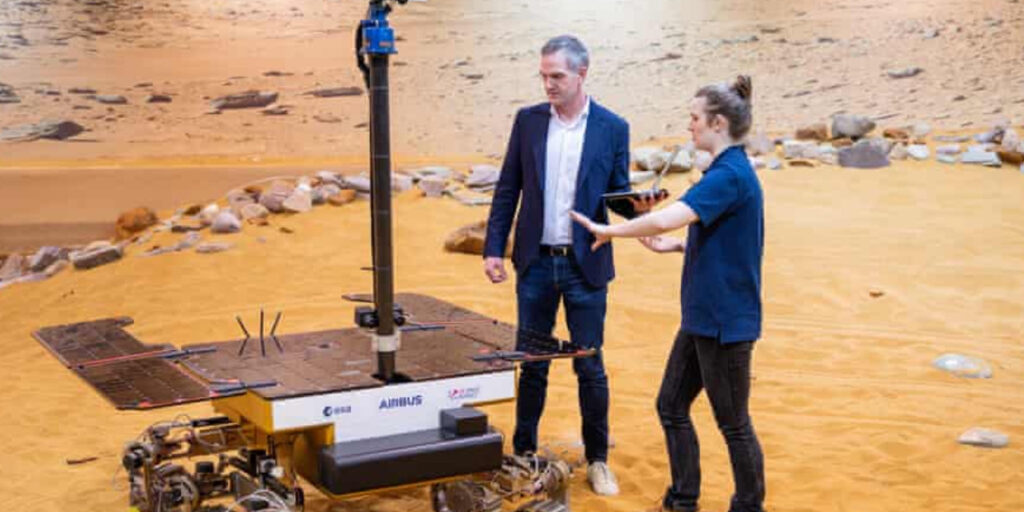The European Space Agency’s ambitious ExoMars mission is officially back on course, with the UK taking a lead role in constructing the landing platform that will deliver Europe’s first Mars rover to the Red Planet. The Rosalind Franklin rover—named after the pioneering scientist behind DNA structure discovery—is now set for launch in 2028 and arrival on Mars by 2030.
UK to Build Landing Platform for 2028 Mars Mission
After a delay caused by the suspension of collaboration with Russia following its invasion of Ukraine, the ExoMars mission has found new life. ESA secured additional funding and brought in NASA and other international partners to replace Russian contributions. NASA will now provide key components, including the launch rocket and the rover’s radioisotope heater units (RHUs).
In a major development, the rover’s landing platform will be built in the UK by Airbus at its Stevenage facility in Hertfordshire. The £150 million contract, awarded by ESA and funded by the UK Space Agency, represents a critical investment in the nation’s growing space industry.
Engineering a Complex Mars Landing
The Rosalind Franklin rover was also constructed by Airbus, but the new challenge lies in safely landing it on the Martian surface. According to Caroline Rodier, project manager for the lander, the platform must handle complex atmospheric entry and deceleration processes.
The lander will arrive on Mars in a capsule—likened to a Kinder Egg by Rodier—equipped with parachutes and a heat shield. Once the first parachute slows the capsule, it will detach to allow a second parachute to deploy. Just before touchdown, the lander’s thrusters will activate to reduce speed to under three meters per second.
The propulsion system, Rodier noted, must have a high throughput capacity unlike anything used in previous ESA missions, presenting new engineering challenges.
Lander Design Includes Ramps and Upgrades
The team is also designing deployable legs and dual ramps that will allow the Rosalind Franklin rover to safely exit the platform post-landing. Since the mission’s delay, the rover itself has undergone updates, including improvements to its guidance and navigation systems.
A New Chapter in European Space Exploration
Paul Bate, CEO of the UK Space Agency, emphasized the significance of this mission. “This is humanity-defining science, and the best opportunity to find if past life once existed on Mars,” he said. “We’re proud to have funded this world-leading technology. The ripple effects of space exploration discoveries extend far beyond the realm of space, driving progress and prosperity across multiple sectors in the UK.”
With international collaboration, cutting-edge engineering, and renewed momentum, the ExoMars Rosalind Franklin rover mission is set to mark a historic step for European—and UK—space exploration.


